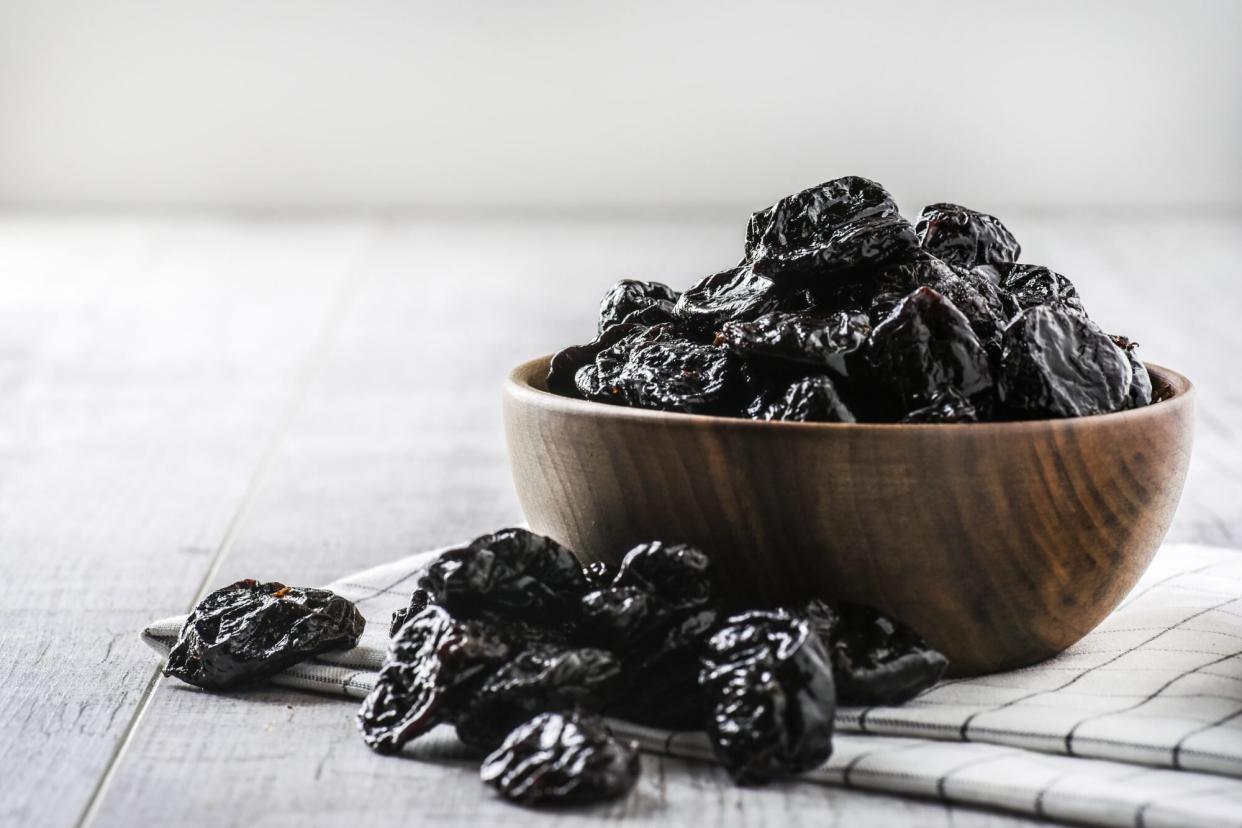Want to Prevent Bone Loss as You Age? New Research Say Eating Prunes Each Day Could Help

Milan Krasula / Getty Images
Prunes aren't usually at the top of most people's grocery lists, but you might want to consider picking up a few next time you visit the market. According to a new study published in the journal Advances in Nutrition, the fruit can help prevent or delay bone loss in older women. "In postmenopausal women, lower levels of estrogen can trigger a rise of oxidative stress and inflammation, increasing the risk of weakening bones that may lead to fractures," says Connie Rogers, associate professor of nutritional sciences and physiology at Penn State University. "Incorporating prunes into the diet may help protect bones by slowing or reversing this process."
The research team at Penn State analyzed data from 16 preclinical studies on rodents, as well as 10 preclinical studies and two clinical trials to obtain their findings. Across the projects, the results consistently showed that eating prunes was linked to less oxidative stress and inflammation, as well as stronger bones. In fact, the clinical trials found that eating about 10 prunes every day for a whole year improved bone mineral density in the forearms and lower spine. Additionally, eating 50 to 100 grams of prunes every day for six months prevented total loss of bone density.
These findings are especially notable for women over the age of 50, as it's quite common for them to be diagnosed with osteoporosis. The condition, which causes the bones to become brittle and weak, plagues about 200 million women worldwide and causes nearly nine million bone fractures yearly. "Fruits and vegetables that are rich in bioactive compounds such as phenolic acid, flavonoids and carotenoids can potentially help protect against osteoporosis, with prunes in particular gaining attention in previous research." says professor Mary Jane De Souza.
Although our bodies work to maintain bone health, around age 40 the breakdown of old bone cells happens faster than the body can produce new ones. The imbalance can be a results of inflammation and oxidative stress—a disparity between the levels of free radicals and antioxidants in the cells. Fortunately, prunes contain a handful of important minerals, fiber, and phenolic compounds that help to fight the impact of inflammation and oxidative stress on the body.
